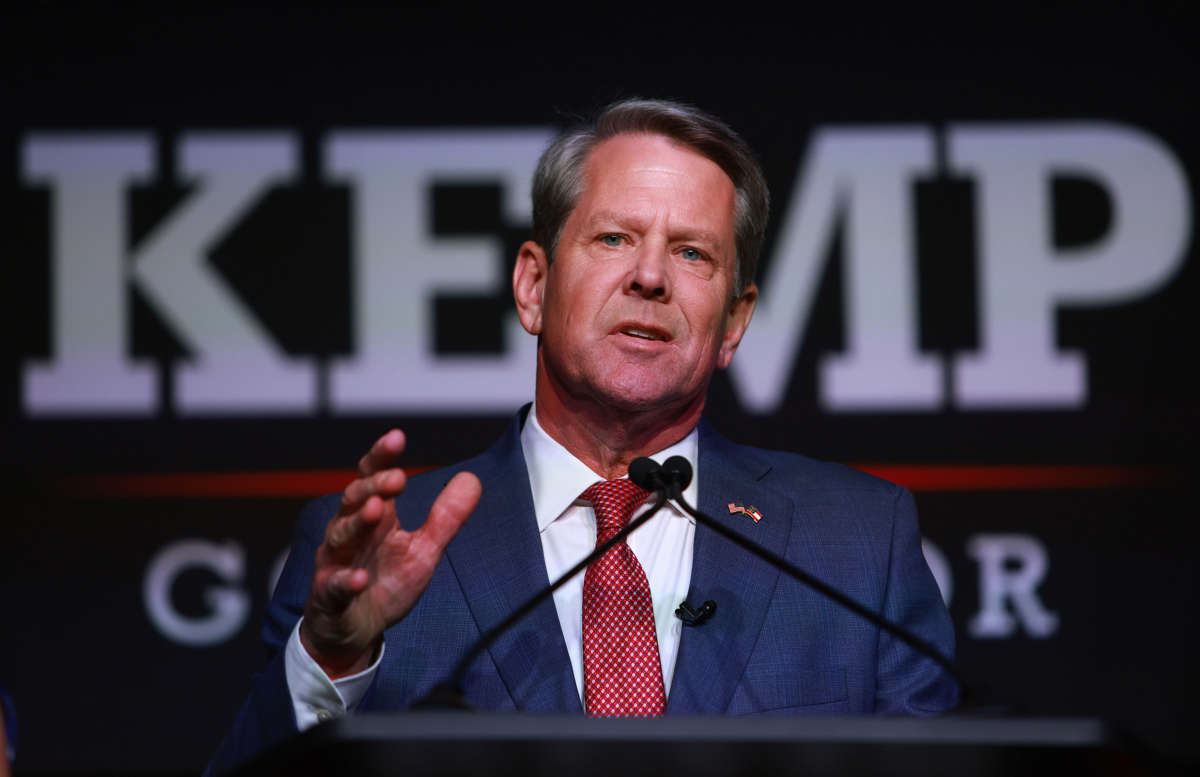In the final gubernatorial debate between Republican Gov. Brian Kemp of Georgia and Democratic challenger Stacey Abrams, Kemp refused to discuss whether he would sign further abortion restrictions into law should voters grant him a second term in office.
During the debate on Sunday, Kemp said it was not his “desire” to go “any further” on abortion restrictions, but added that he would “look into” the possibility of adding restrictions “when the time comes.”
“I’m not going to say yes or no to any specific piece of legislation without seeing exactly what it is doing,” he said.
During the previous debate, however, Kemp claimed he wouldn’t back anything beyond the state’s current restrictions, which ban abortions after six weeks of pregnancy — so early on in a pregnancy that many people don’t yet know they are pregnant.
That ban, which Kemp signed into law in 2019, is one of the most restrictive in the country, making exceptions only when a person’s life is at risk or in cases of rape or incest. In the latter case, a person is required to file a police report before they are allowed to undergo the procedure.
Abrams, who lost to Kemp by only a small margin in the 2018 gubernatorial race, blasted the governor for his response.
“Let’s be clear, he did not say he wouldn’t” enact further abortion restrictions, Abrams said during the debate.
She then reminded viewers that “under the law that [Kemp] signed women can be investigated for miscarriages.”
Kemp has also signaled that he would be open to banning birth control in Georgia if given the chance as governor. In comments that were caught on a hot mic in September, the Republican governor said it would “[depend] on where the legislatures are” during the next session.
“You could take up pretty much anything but you got to be in the legislative session to do that,” Kemp went on. “I think, I’d have to check and see because there are a lot of legalities.”
Media that fights fascism
Truthout is funded almost entirely by readers — that’s why we can speak truth to power and cut against the mainstream narrative. But independent journalists at Truthout face mounting political repression under Trump.
We rely on your support to survive McCarthyist censorship. Please make a tax-deductible one-time or monthly donation.
